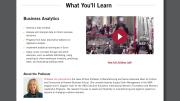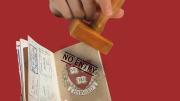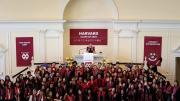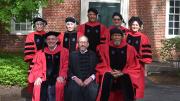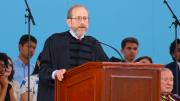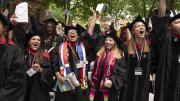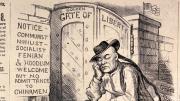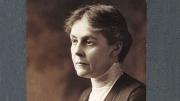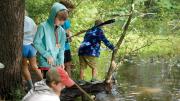Students enrolling at Harvard’s Business School, Law School, and Graduate School of Education (HBS, HLS, HGSE) for M.B.A., J.D. and LL.M., and Ed.M. degrees now can—and in some cases must—begin their programs of study before matriculating. Making use of the summer before the new academic year, each school has linked a new kind of instruction with online technology to introduce entering students to content critical to their coursework and, for HBS and HLS, their distinctive pedagogies. The programs’ designs vary by school, but aim in common to:
- equip students from increasingly diverse academic and professional backgrounds with intellectual tools they need to succeed from the first day of their classwork—an investment in productive learning, as they embark on expensive professional educations; and
- put them all as much as possible on an equal footing as the semester begins—a significant effort to make their academic experiences more inclusive.
The programs may also influence professional education elsewhere; blossom into sources of new revenue and potential applicants (as HBS’s program already has, by design); and shape teaching on campus (at HGSE). They might even affect how Harvard College thinks about its now-limited First Year Retreat and Experience for entering undergraduates who are the first members of their families to attend college, or who come to Cambridge from under-resourced high schools (as discussed below).
Business Beginners: “Something big is learned there.”
HBS administers a diagnostic test to admitted M.B.A. students before they enroll, and then requires those needing additional preparation to take summer instruction in business analytics and financial accounting. That in-person, residential instruction has recently been replaced with the online Credential of Readiness (CORe) program, the flagship of Harvard Business School Online (formerly HBX).
CORe is a significant commitment, with demanding courses in:
- business analytics, taught by Phillips professor of manufacturing Jan Hammond, with modules on data, sampling and confidence intervals, hypothesis-testing, linear regression, and multiple regression—the basic statistical toolkit;
- economics for managers—covering customers’ willingness to pay and demand, ways to influence demand, supply and cost, markets, competition, and product differentiation—taught by Byers professor of business administration Bharat Anand (who led the creation of HBX and CORe and now, as vice provost for advances in learning, oversees University online learning); and
- financial accounting, taught by Casserly professor of business administration V.G. Narayanan, who introduces the basics of accounting, journal entries, financial statements, accruals and deferrals, cash-flow analysis, and forecasting and valuation—the basic language for understanding an enterprise’s performance and status.
By one estimate, serious engagement with the three-course sequence requires 170 hours (and in this user’s sampling of CORe, that may well be conservative).
The course outline makes clear that its contents are essential to the coursework M.B.A. candidates will encounter in their first-year required curriculum. (Coming to class without some level of comfort in, say, making sense of a company’s income statement would be a painful, even scary, way to begin a learning experience.) But CORe is also a sophisticated learning system, including not only short videos of the professor teaching, but also technological features that impart the texture of being enrolled in an HBS class, encompassing:
- company case studies (for example, the first economics module includes conversations with the head of Boston’s Ace Ticket, a reseller, talking about customers’ willingness to pay for seats for the deciding 2019 championship playoff game featuring the hometown Bruins)—a vivid representation of HBS’s famous teaching cases, a method with which many college graduates are not acquainted;
- frequent quizzes to be sure students understand the material, along with explanations of correct and incorrect answers—and ways to consult online with classmates taking the course at the same time for help, or to deepen learning;
- prompts for students to suggest examples or solutions to problems (for example, identify a good or service provided free of charge for which customers might be willing to pay—such as public drinking fountains or toilets), and the necessary social technologies to share one’s responses with peers—modeling a way HBS class discussions proceed;
- cold calls, demanding a timed response to a query and the student’s defense of his argument—another feature of participation in HBS classes that may be new, and intimidating; and
- graded tests at the end of each module (five to seven modules per course)—and an overall, graded exam at the conclusion of CORe—much like the exams at the end of an HBS semester.
This is not quite the face-to-face experience of being in a first-year class—with the emotional immediacy of being called upon in front of fellow students, or commenting on their observations—but it is a very good approximation. (Some of the examples may also serve as a perhaps unintended reflection on another aspect of HBS: not all M.B.A. candidates arrive with the experience of paying more than $1,000 for a hockey ticket, nor immediately resonate to the concept of “willingness to pay” when it is attached to a $100 cashmere sweater.)
This is the fifth year CORe has been required for students flagged by HBS’s diagnostic tests—but the first time it has been made available to the entire entering cohort. They will retain access to the courses, for reference or as a refresher, during their two-year residential course of study.
Christensen professor of business administration Jan W. Rivkin, who became chair of the M.B.A. program in July 2018, noted that CORe in a sense was simply a different way of delivering preparatory materials to students identified as needing them—a successor to the former summer residential program, and a way to scale it up for more users. But, he noted, HBS’s investment in such summer experiences and academic preparation for its new M.B.A. classes had been “extraordinarily well received by students and faculty” members—anecdotal evidence, at least, that the program’s demanding investment of time is warranted.
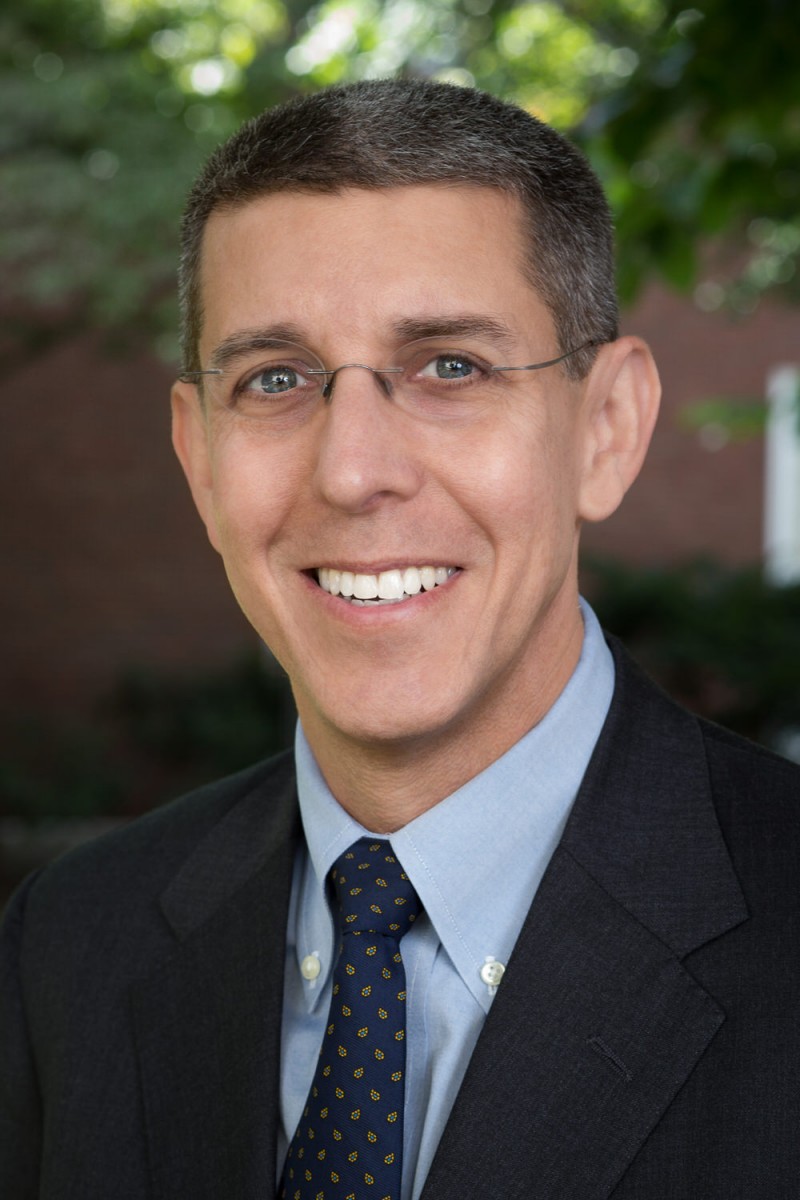
Jan W. Rivkin
Phtograph by Russ Campbell
Because it would be inappropriate to deny students who need preparation access to CORe, the effects of the program have not been rigorously tested (by, for example, dividing those students into cohorts that do or do not take CORe, and comparing their later performance in on-campus classes). Nonetheless, Rivkin said, “The one thing we do know is that those who do better on the CORe final diagnostic do get higher exam grades on the required accounting and technology and operations management courses.
“Something big is learned there,” he continued—including not only the contents, but exposure to defining elements of the pedagogy, such as cold calls and in-class discussions with peers. CORe’s design “gets you used to it” and “gets you excited about it.” Today’s HBS M.B.A. students are internationally diverse, from many different undergraduate traditions, and they arrive in Allston with “broader backgrounds” in academic concentrations and prior business experiences, compared to past cohorts. Thus CORe’s acculturating effects are, at a minimum, likely important for students’ comfort with and academic productivity in their first classes.
More broadly, of course, HBS designed CORe for sale to users willing to pay for this kind of business primer: liberal-arts graduates seeking entry into a business position, people retooling for a career change, students kicking the tires on an M.B.A. Beyond the revenue it generates, CORe serves HBS as a recruiting tool in an increasingly competitive market for M.B.A.-granting institutions. If students who use CORe then go on to M.B.A. programs elsewhere, that presents another opportunity for HBS: its publishing entity sold nearly 15 millioncases for instructional use in fiscal year 2017 by other schools that have adopted the HBS teaching methods—so the more institutions wed to case instruction, the merrier.
In this context, CORe serves a three-pronged strategy: delivering income from online education; serving as a marketing tool for HBS itself; and offering its own M.B.A. matriculants a superbly crafted tool for flourishing on campus. As they pursue their degrees, they might find plenty to admire in that business model.
Zero-L: “I felt completely clueless.”
Shortly after he became dean of the law school in mid 2017, as part of his plans for online education, John F. Manning expressed interest in developing a common learning experience “meant to ensure that all incoming students, whatever their backgrounds and previous areas of study, start with the foundational knowledge that will enable them to thrive at HLS,” as a Harvard Law Today (HLT) report put it. Perhaps not coincidentally, Manning was a first-generation college graduate and the first member of his family to pursue a legal education: “When I arrived at HLS, I felt completely clueless about a lot of things,” HLT reported. “I didn’t know what the common law was, or the differences between state and federal courts.”
With a puckish spirit that outsiders might not associate with lawyering, the school’s resulting pre-matriculation learning program—assembled in time to be deployed in the summer of 2018—has been dubbed “Zero-L,” a predecessor to the three-year J.D. course of study beginning with the 1L year. (Thus far, no one has announced a prequel to Scott Turow’s bestselling One L.)
Attwood and Williams professor of law I. Glenn Cohen, who had taught an online course on the HarvardX platform and also leads a first-year section, was tapped to lead the faculty group developing a pilot program—not least, he said, because he “thought it was a supercool project.”
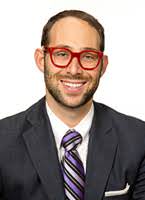
I. Glenn Cohen
Photograph by Martha Stewart
One reason for that, Cohen explained, derived from his own “origin story”: he was a first-generation college student, too (neither parent finished high school); there were no lawyers in his family; because he had studied bioethics (philosophy) and psychology, coming to HLS was a “big transition” (he is J.D. ’03); and as a native of Canada, “I knew nothing about the U.S. legal system.” To imagine his way into the minds of newly matriculating students now, he continued, “I had to unlearn what I learned” as a law student himself.
Pilot contents went through several iterations, with testing and comments from current students, faculty members, student teaching assistants who help with the first-year writing program, admissions personnel, and others. The learning objectives—familiarizing students with the rudiments of the U.S. legal system, legal vocabulary, and such skills as briefing a case and preparing for classes conducted by the Socratic method—were conceived as “useful to everyone” beginning an HLS education: the entire J.D. cohort, andthe cohort of international LL.M. candidates. In addition, Cohen pointed out, the J.D. students are “a much more diverse set” intellectually and internationally than in decades past: about one-sixth studied STEM disciplines as undergraduates, and an equal number are from outside the United States, according to HLT. Unlike HBS students, most of whom begin their studies after some experience in business, many students embark on law school immediately after college, without exposure to legal practice (although one-quarter have worked for four or more years). And students today are far less likely to come to the law from a family with a relative who was or is in the profession.
The result was a 10-hour video “on-ramp to law school that's a little bit smoother.” Cohen recalled his own first year as the most intellectually stimulating year of his life—but also the “most overwhelming,” a “baptism by fire.” Explaining the structure of the legal system at the federal and state levels; common law; statutory interpretation; and related subjects—and embedding them in overviews of how to read a case and the Socratic method—enabled students to acquire a sense of, or refresh their familiarity with, their forthcoming curriculum. And all the 1Ls knew that their matriculating peers had been exposed to the same material in the same way.
The experience, Cohen said, provides “content and a little bit, subconsciously, about the way we teach.” The video clips introduce some of the first-year faculty and colleagues whom students may recognize, such as Cohen himself, Frankfurter professor of law Noah Feldman, and Watson professor of law Jeannie Suk Gersen.
Informal feedback has been encouraging. Cohen cited a “huge positive response” from students. A word-cloud analysis of their comments yielded “prepared” and “excited” as the top descriptions
Version 2.0, deployed this summer, has added some complementary units: Cohen cited coverage of the legal profession itself (responding to entering students’ reduced family or pre-legal-studies exposure to the law), and of criminal law and procedure. In future editions, depending on student and faculty evaluations, he said, the core program could be expanded with additional modules, and extended into the school year proper. HarvardX’s technology enables instructors to study how students use the program, and their comprehension of the material; that will help refine the first few pilots.
Thus far, Cohen said, the program is serving its inclusive purpose, equipping students with “a common set of understandings.”
It has also yielded a couple of unexpected benefits. First, developing the program has made participating faculty members more aware of their teaching: more sensitive to terms that they know well, but students do not, for example. The effect is a mutual “ramp to be ready on day one,” as Cohen put it, making the initial class experiences more productive. Second, he said, HLS students do not lack for focus and motivation; if anything, he has found that in his first-year civil procedure courses, the students are too wound up and anxious, so he has to get them to relax. Zero-L helps by conveying a sense of “what a law-school classroom looks like” and how teaching and learning proceed there.
And, yes, there could be applications beyond Cambridge. “There have been queries already,” he said. “We think it’s a good product and we hope others will, too.” Given the universe of potential applicants to law schools, and the competition for them, one imagines the experience already gathered through HBS’s CORe might travel well across the Charles River.
How People Learn: “Connecting the science of learning to professional practice”
The Harvard Graduate School of Education (HGSE) Teaching and Learning Lab, a sort of technological and pedagogical research-and-development center, is piloting a nascent, but already ambitiously named, “How People Learn” entry-level learning experience for master’s students. The pilot project, which enrolled students by invitation before they matriculated in 2018 and this summer, is intended to produce “a common core experience for all incoming master’s students at HGSE. The course will focus on connecting the science of learning and human development to professional practice in education across roles.”
In a way, this is an especially ambitious objective. “Education” encompasses many possible professional paths, and there is far more disagreement on what an educator (whether in the classroom or as a principal or superintendent; K-12; public vs. charter vs. private schools; a policymaker; and so on) needs to know compared to, say, a law or medical student. Indeed, the definition of the profession, and how to prepare HGSE students, are the subject of wide and deep work within the school now. It has 13 Ed.M. tracks, and is determining what core competencies (in, say, data analysis, cognitive and learning science, management and leadership, and policy) the students enrolled in future master’s programs may need to acquire.
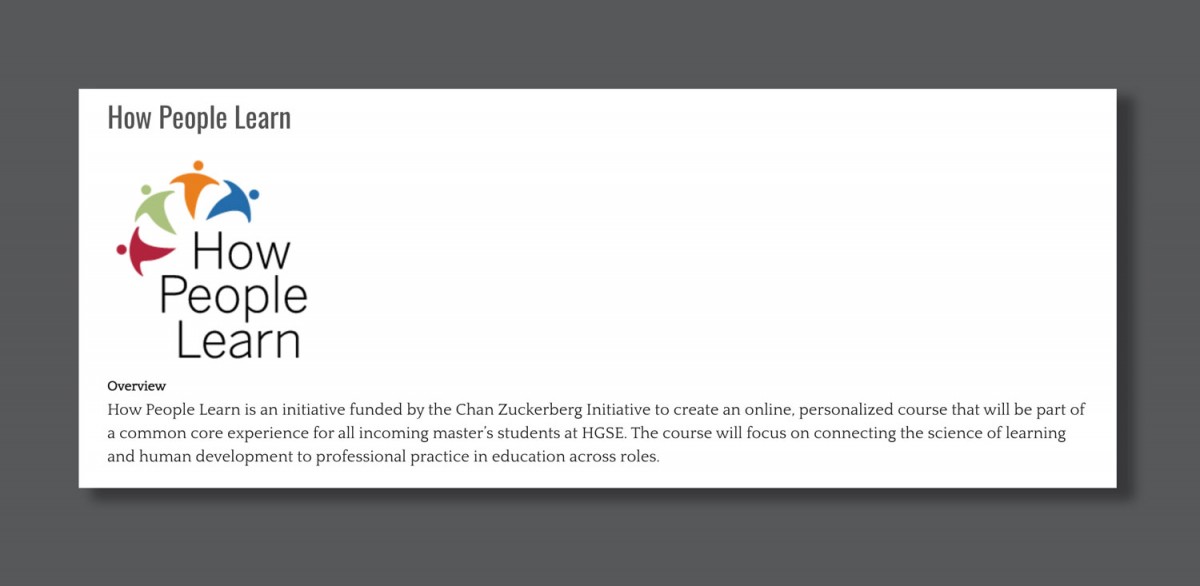
Screenshot from the Harvard Graduate School of Education website
In this sense, How People Learn and HGSE’s curriculum are simultaneously being built and rebuilt, shaping each other and making ready for changes that will evolve during the next several years. The school’s enrolling master’s candidates may be even more diverse in background and interests than those headed for HBS and HLS, and so will especially need common preparation for their Cambridge studies—which are compressed into one year on campus, compared with two and three at HBS and HLS, respectively.
The Teaching and Learning Lab itself suggests the scope of the challenge:
The goals of the project are twofold. The first is to design and build a foundational, personalized learning experience for future education professionals. The second is to fund faculty experimentation with personalizing curriculum, pedagogy, and assessments in their teaching. Through both of these goals, HGSE hopes to pioneer how we think about personalization in a professional school.
Again, there could be impact beyond Harvard. But in the meantime, one suspects, the advanced experience at the other professional schools already deploying such pre-matriculation on-ramps may be valuable to the teachers-in-training.
And the College…
Harvard College has invested heavily since the middle of the last decade to attract high-performing students from lower-income households, first-generation college families, and under-resourced school districts (which may not offer AP or equivalent courses, or laboratory sciences, for example). But it has been restrained in introducing those undergraduates to the kind of work expected of them, pedagogical assists such as office hours, and avenues of support as they balance family needs with their exploration of their suddenly enriched educational opportunities. The institution’s “every tub on its own bottom” model for its separate schools in a sense carries over to its tradition of each student navigating her path individually. As reported (see link above), there is now a brief pre-orientation program, operated simultaneously with traditional experiences such as the First-Year Outdoor Program (bonding while backpacking, as it were).
Peer institutions that offer such students multiweek, on-campus academic orientation programs—typically with intensive courses in writing and a science or quantitative focus—have chosen a different approach (see this report on the Yale, Princeton, and Georgetown immersions). Faculty instructors and program participants report transformative effects for both the students immediately affected and, in many respects, for their classmates generally.
Would the College move in this direction? The existing first-year orientation for this cohort is only two years old, so it is too soon to expect any wholesale change—and adopting a fully residential, academic program is very expensive. Nonetheless, as the professional schools proceed with pre-enrollment academic programming—in the interests of advancing the learning experiences of all students, and making them feel genuinely included in their schools’ cultures—perhaps the benefits of doing so for the increasingly diverse Harvard undergraduates of the future may come to seem more compelling and feasible in the College, too.
